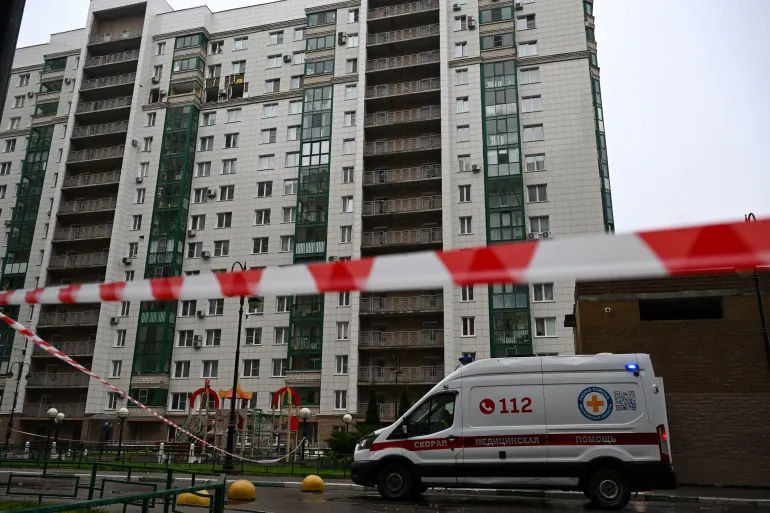
Ukrainian President Volodymyr Zelenskyy is set to meet a coalition of European leaders in London to discuss ramping up military aid to Ukraine and strengthening Western unity against Russia’s ongoing invasion, now in its fourth year. The high-level talks aim to ensure continued support for Kyiv even as the prospect of a ceasefire remains uncertain and Russian attacks intensify across the war-torn nation.
London Hosts ‘Coalition of the Willing’ Summit
Zelenskyy will join UK Prime Minister Keir Starmer, NATO Secretary-General Mark Rutte, Danish Prime Minister Mette Frederiksen, and Dutch Prime Minister Dick Schoof at the UK Foreign Office for critical discussions on Ukraine’s military future.
According to British officials, about 20 other European and global leaders will participate via video conference in what has been dubbed a meeting of the “Coalition of the Willing.” The coalition consists of nations that have pledged to provide sustained military, financial, and humanitarian support to Ukraine.
The summit is expected to focus on:
- Reinforcing Ukraine’s air defences against daily Russian drone and missile attacks.
- Protecting Ukraine’s power grid ahead of the harsh winter months.
- Supplying Kyiv with longer-range missiles capable of striking deep inside Russian territory.
- Coordinating future sanctions aimed at crippling Russia’s energy-based economy.
Starmer emphasized the urgent need for a united response to Russian aggression, saying:
“Time and again, we offer President Putin the chance to end his needless invasion, to stop the killing and recall his troops. Yet he repeatedly rejects every proposal for peace.”
Russia Steps Up Attacks as Winter Nears
As the diplomatic summit unfolds in London, Russia has intensified its aerial bombardment of Ukrainian cities and infrastructure. Civilian targets have been struck repeatedly, resulting in rolling blackouts and energy rationing across Ukraine.
In one of the most notable incidents on Friday, a Ukrainian drone crashed into an apartment building in Krasnogorsk, a suburb northwest of Moscow. The strike wounded at least five people, including a child, according to Moscow region governor Andrey Vorobyov.
Although Ukraine has carried out numerous cross-border drone operations, attacks near Moscow remain rare, marking a symbolic escalation of the war’s reach.
The Russian Ministry of Defence claimed to have shot down 111 Ukrainian drones overnight across multiple regions, while Ukraine’s air force said Russia had launched 128 drones targeting Kyiv and other urban areas. Both sides continue to report heavy drone warfare activity amid the broader conflict.
New Sanctions and Military Pressure on Moscow
The London meeting follows a fresh wave of Western sanctions targeting Russia’s oil and gas sector, a key source of funding for President Vladimir Putin’s war machine. The United States and the European Union coordinated measures this week designed to further isolate Moscow economically and disrupt its access to foreign revenue streams.
Zelenskyy has called for greater long-range missile systems and advanced air defence capabilities to defend Ukraine’s infrastructure and maintain deterrence. Kyiv has also urged its allies to expedite F-16 fighter jet deliveries and ammunition supplies, warning that delays could prove costly as winter fighting intensifies.
Starmer and Rutte are expected to push for greater coordination among NATO allies to sustain ammunition stocks and supply chains. Analysts suggest that Friday’s meeting could mark a turning point for Western strategy, shifting focus from short-term aid to long-term security commitments for Ukraine.
The Human Cost Continues to Rise
On the ground, Russia’s military has reportedly captured several small villages in eastern Ukraine, including Bolohivka in the Kharkiv region, Promin in Donetsk, and Zlagoda in Dnipropetrovsk, according to Russian state media. These advances, though minor geographically, highlight Moscow’s strategy of incremental territorial gains amid continued attrition warfare.
Meanwhile, Ukraine’s energy grid—already battered by repeated strikes—is facing renewed attacks as temperatures begin to drop. Ukrainian officials have imposed rolling power cuts in Kyiv and other major cities to conserve electricity.
Peace Still a Distant Dream
Despite ongoing Western pressure, Putin remains defiant in the face of sanctions and has shown no willingness to negotiate. The Kremlin insists its “special military operation” in Ukraine is justified on security grounds, while Kyiv and its allies label it an act of unprovoked aggression.
Analysts warn that peace talks remain unlikely in the near future. As the conflict enters another winter, Ukraine’s resilience and Western unity will be tested more than ever.
Key Takeaways
- Zelenskyy meets with European leaders in London to coordinate new military aid for Ukraine.
- The “Coalition of the Willing” includes more than 20 global leaders pledging continued support.
- Russia intensifies drone and missile attacks, targeting Ukraine’s energy infrastructure.
- Western nations impose new sanctions on Russian oil and gas exports.
- Prospects for a ceasefire or peace agreement remain remote.


Leave a Reply